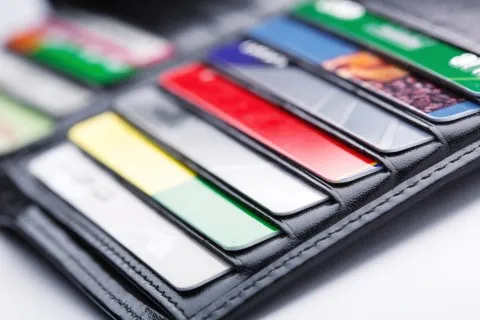
Cards to reign supreme in South Korea as cash loses appeal
By 2020, cards will emerge as the dominant payment instrument.
Cards are expected to surpass cash in terms of payment volume to become the dominant payment instrument in South Korea by 2020, according to a report from data and analytics firm GlobalData.
South Korea is characterised by high card penetration and frequency of card payments. The frequency of payments by credit cards in the country stand at 132 times in 2019, much higher than in developed markets such as France, Canada, the US and the UK.
Credit card payment value in South Korea increased from $495.7b (KRW551.9t) in 2015 to $644b (KRW717.1t) in 2019 and is expected to grow further to $820.9b (KRW914.1t) by 2022.
Also read: Korea's open banking system threatens dominance of credit cards
“The high use of credit cards is largely due to various government measures, including promotional events, tax incentives and the mandatory acceptance of credit cards at merchant stores," Nikhil Reddy, Payments Analyst at GlobalData, said in a statement.
“At present, a 15% tax exemption rate is offered on credit card expenditure for individuals earning $0.1m (KRW70.0m) or less a year.”
Whilst credit cards continue to dominate, debit cards are also increasingly being used for payments. This has been supported by government measures to rein in the growing card debt and encourage debit card usage.
For instance, debit card holders have access to a tax deduction of 30% on their debit card expenditure – double the equivalent for credit cards.
In a move to lower credit card acceptance costs among smaller merchants, the Financial Services Commission (FSC) announced new reforms effective from February 2019.
The merchant service charge on credit cards was lowered by 0.65 percentage points (pp) to 1.4% per transaction for smaller merchants with an annual revenue of between KRW500m (US$0.4m) and KRW1.0b (US$0.9m). For larger merchants with annual revenue of between KRW1.0b (US$0.9m) and KRW3.0b (US$2.7m) the fee was decreased by 0.61 pp to 1.6%.
Reddy concludes: “Initiatives like tax incentives and reduced merchant service charges will drive card payments further, resulting in card payments overtaking cash in the near future.”




![Lorem Ipsum [ABF 1]](https://cmg-qa.s3.ap-southeast-1.amazonaws.com/s3fs-public/styles/exclusive_featured_article/public/2025-03/a_hand_pointing_to_a_futuristic_technology_5b87c9d0e3_1.png.webp?itok=2w0y1WhS)


![Cross Domain [Manu + SBR + ABF + ABR + FMCG + HBR + ]](https://cmg-qa.s3.ap-southeast-1.amazonaws.com/s3fs-public/styles/exclusive_featured_article/public/2025-01/earth-3537401_1920_4.jpg.webp?itok=WaRpTJwE)







 Advertise
Advertise

